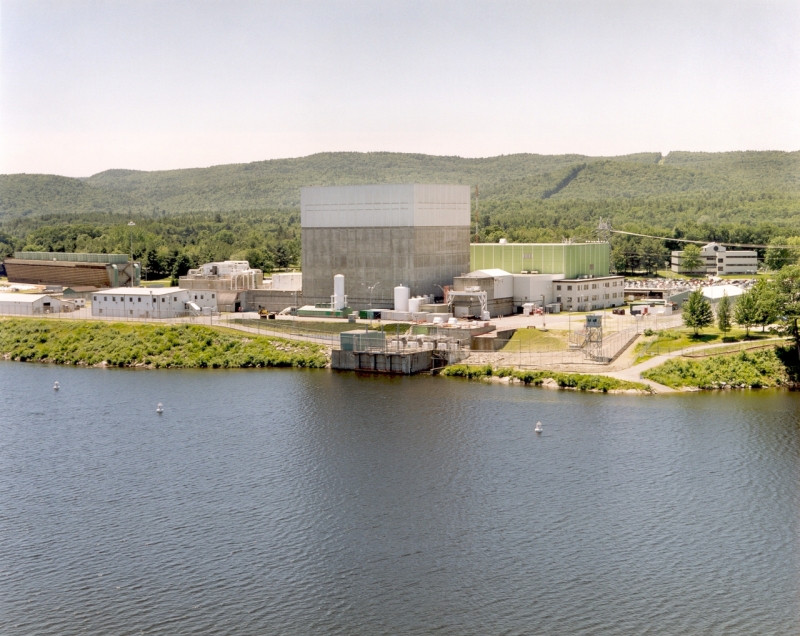The supporters of nuclear power are trying to crank up public support and investors for a variety of nuclear power projects. Unfortunately for them, energy efficiency and conservation are estimated to cost one fourth of the price of a new nuclear power plant. Wind power and cheap natural gas are estimated to be about half the cost of nuclear power. Reactors that are currently under construction in the U.S. and Europe are over budget and behind schedule. While the cost of building a nuclear reactors are well understood, there is less appreciation for escalating operating costs. As reactors age, they become more and more expensive to repair. At some point, it is no longer economically feasible to keep repairing an old reactor. Nuclear power has strong political support and is fighting to prevent renewable energy sources from being exploited but, hopefully, it is losing the battle.
Entergy is closing the Vermont Yankee power plant in Vernon, Vermont. The company is being forced to close the plant because it is no longer profitable. Electricity demand is down, cheap natural gas is abundant and nuclear power is not being given the special "consideration" (tax breaks, loan guarantees, guaranteed electricity prices, etc.) its supporters think it is entitled to. Critics of the closing predicted that the bills of New England ratepayers would increase by forty percent this winter because the power plant is being closed.
Last year, N.E. energy prices were about thirty six percent above the average electricity cost in the U.S. In 2004, N.E. electricity cost thirty six percent above the average electricity cost in the U.S. Now it is estimated that N.E. electricity costs will rise by about three percent in the next year as compared to a rise of about two and a half percent for U.S. in general. It does not seem as if having the Vermont Yankee power plant operating did much to lower the cost of electricity in N.E. Supporters of the closing say that removing Vermont Yankee from the grid in N.E. will not have much impact on the cost of electricity for the region.
The Maine Public Utility Commission recently conducted a study of the N.E. power supply system. The Commission presented what it considered to be the optimal mix of energy sources for N.E. Their projection included consideration of price risks and carbon emissions. They did not include nuclear power in the mix. Natural gas was only about one sixth of the mixture of desirable energy sources. Many financial analysts with big institutions have projected that improving energy efficiency, stepping up conservation and implementing renewable energy sources should be able to supply electricity demand for the next several decades. One of the problems that they highlight is the fact that huge centralized power generation is too big and too inflexible to meet the energy needs of the future.
Many studies have shown that nuclear power cannot compete with available alternatives in terms of either construction costs or operating costs. A great deal of work is being done to develop practical battery systems to back up intermittent power sources like wind and solar. When these new battery systems go into operation in the near future, one more excuse for continuing to use nuclear power will be gone. Let us hope that policy makers pay attention and refuse to be seduced by empty promises of the nuclear industry.
Vermont Yankee power plant:
